Join Darrell Amy for the One Ideal Client Away Challenge,
April 10-14
www.oneidealclientaway.com
REVENUE GROWTH ENGINE BLOG

How Improving Culture Drives Business Valuation
Corporate culture is more than just a buzzword—it is a fundamental driver of business success. This is especially true for mid-market businesses looking to increase their valuation.
Research consistently shows that companies with strong cultures experience accelerated revenue growth, improved efficiency, higher employee engagement, and greater innovation.
Using the framework of the four Value Creation Engines™ (from A Business Owner’s Guide To Maximize Business Valuation)—Revenue Growth, Process Optimization, Culture Development, and Strategic Innovation—we can estimate the impact of culture on business value. Here’s how:
1. Revenue Growth Engine: The Cultural Multiplier
A positive corporate culture directly impacts top-line revenue. Companies with strong cultures grow four times faster than competitors with weak cultures (Harvard Business Review, 2018). The reasons are clear:
Sales Performance: Sales teams in companies with strong cultures are more engaged, motivated, and productive, driving increased revenue (Deloitte, 2020).
Customer Retention: Engaged employees lead to 10% higher customer satisfaction and retention (Gallup, 2021).
Competitive Advantage: 82% of executives believe culture differentiates companies from competitors (Deloitte, 2019).
Employer Branding: 77% of consumers prefer purchasing from companies with strong workplace cultures (Edelman Trust Barometer, 2020).
2. Process Optimization Engine: Culture Improves Efficiency
A strong culture fosters collaboration, efficiency, and proactive problem-solving. Process optimization leads to measurable financial improvements:
Higher Productivity: Engaged employees are 12% more productive than disengaged employees (Gallup, 2019).
Better Collaboration: Companies with strong cultures see 26% higher teamwork efficiency across departments (MIT Sloan, 2018).
3. Culture Development: Attract and Retain Top Talent
Employees today prioritize culture as much as compensation. Culture impacts employee retention, employer branding, and workforce engagement:
Retention Boost: 35% of employees would leave a job for a better culture, even without a pay raise (Glassdoor, 2021).
Lower Turnover Costs: Strong cultures reduce employee turnover from 48.4% to 13.9%, saving recruitment and training expenses (SHRM, 2020).
4. Strategic Innovation: The Culture-Innovation Link
Culture impacts how businesses innovate and adapt to market changes:
Psychological Safety: Teams that feel comfortable taking risks and sharing ideas are 50% more innovative(Google Project Aristotle, 2017).
Faster Market Adaptation: Companies with a culture of continuous learning pivot more effectively in uncertain markets (Harvard Business Review, 2021).
A Fictional Illustration of the Financial Impact of Culture Transformation
How could this look in the real world? Based on the statistics above, let’s consider a fictional example.
A mid-sized company with $10M in revenue and $1M in EBITDA faced stagnation. The company’s valuation was at 5X EBITDA ($5M valuation), and leadership wanted to increase its market value. By improving corporate culture by 50%, they achieved:
Year 1 (EBITDA Multiple: 5.5X):
Revenue Growth Acceleration: Growth rate increased from 10% to 15%, adding $1.5M in new revenue.
Efficiency Gains: A 6% productivity boost led to $240K in cost savings.
Lower Turnover Costs: Hiring and retention improvements saved $100K annually.
Higher EBITDA: EBITDA grew from $1M to $1.49M.
Innovation Success: Psychological safety initiatives led to the launch of a new product line, contributing $500K in additional revenue, bringing total revenue to $12M and EBITDA to $1.54M.
Year 2 (EBITDA Multiple: 6X):
Continued Growth: Revenue increased by another 15%, reaching $13.8M.
Ongoing Efficiency Gains: Additional cost savings of $250K.
EBITDA Growth: EBITDA increased to $1.79M.
Expanded Innovation Impact: The company invested in R&D, leading to another $700K revenue boost, bringing total revenue to $14.5M and EBITDA to $1.85M.
Year 3 (EBITDA Multiple: 7X):
Sustained Expansion: Revenue reached $16.2M.
Process Improvements: Another $200K in efficiency gains.
EBITDA Increased to $2.1M.
New Market Entry: A culture-driven innovation mindset led to expansion into a new market, adding $1M in revenue, bringing total revenue to $17.2M and EBITDA to $2.2M.
Final Valuation Impact:
Before culture improvements: $5M valuation (5X $1M EBITDA)
After three years of culture improvements: $15.4M valuation (7X $2.2M EBITDA)
Total Business Value Increase: $10.4M (+208%)
While this is a fictional illustration, the principles hold true. Improving culture affects every Value Creation Engine. In turn, this increases the Readiness and Attractiveness of a business to a potential buyer, improving the multiple. All of this leads to increased valuation.
Conclusion: Culture is a Business Valuation Multiplier
The impact of corporate culture is measurable and directly linked to financial performance. Companies that invest in culture reap the rewards of accelerated revenue growth, optimized processes, higher employee engagement, and sustained innovation. Business owners looking to maximize valuation should prioritize culture as a strategic asset—because a strong culture doesn’t just create a great workplace; it creates a more valuable business.
Next Steps
1. Listen to the Culture From the Heart Podcast
For more insights on corporate culture and business growth, tune into the Culture From the Heart podcast, a show I co-host with Larry Levine . Gain expert advice from midmarket CEOs on transforming workplace culture to drive long-term success.
1. Measure Your Business Valuation
Understanding your company's current valuation is the first step in maximizing its potential. How does your business compare? Discover how cultural improvements can increase your multiple and overall enterprise value. Schedule a consultation today to assess your valuation and build a roadmap for sustainable growth.
FREE BUSINESS VALUATION
What is Your Business Worth?
You can Discover the Value of Your Business in Less than 20 Minutes!
Join 70,000 business owners and get your score on the 8 Factors That Drive Your Company’s Value, a comprehensive analysis of your score and a detailed action plan for how to improve your score on each.

Subscribe to get updates each time we publish growth strategy ideas.















